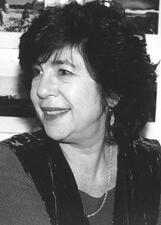Performing Arts
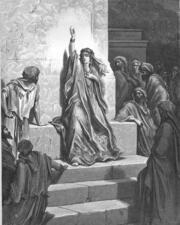
Deborah 2: Midrash and Aggadah
Deborah, one of the most extraordinary women in the Bible, is presented as an extremely righteous and praiseworthy woman in rabbinic literature. Though some traditions criticize her pride, perhaps wary of how she transgressed gender norms, most of the rabbinic texts about Deborah are filled with praise.
Katya Delakova
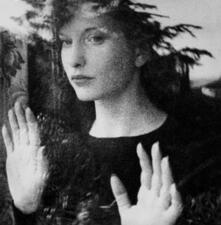
Maya Deren
Maya Deren pursued an ambitious career as a writer, publishing poetry, essays, and newspaper articles. She was also one of the most important avant-garde filmmakers of her time for her use of experimental editing techniques and her fascination with ecstatic religious dances. In 1946 she used a Guggenheim Fellowship to photograph Haitian dance.
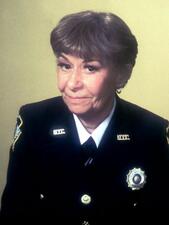
Selma Diamond
Long before her final role as the grouchy bailiff on Night Court, Selma Diamond earned a reputation behind the scenes as a brilliant, salty comedy writer for some of the best shows on radio and television. Diamond wrote radio routines many famous comedians was a regular on the Jack Paar show and acted on stage and in many television shows and movies.
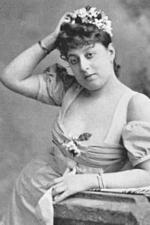
Selina Dolaro
A determined and talented performer, Selina Dolaro raised four children alone while pursuing an illustrious acting and singing career in late nineteenth-century England and America. Dolaro performed in various London operas, most notably as the title role in the first English version of Carmen. She made her American debut as Carmen in 1879.
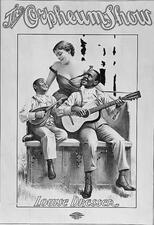
Louise Dresser
Louise Dresser was a celebrated singer in vaudeville and musical comedy, as well as a star in early motion pictures. Known largely for her rendition of Paul Dresser’s song “My Gal Sal,” she also sang his “On the Banks of the Wabash.” After vaudeville, Louise Dresser found success on Broadway, before moving to Hollywood to star in films opposite Will Rogers.
Jacqueline du Pre
Jacqueline du Pré was a world-renowned cellist whose career was sadly cut short due to multiple sclerosis. Du Pré gave concerts worldwide in the second half of the twentieth century and was particularly known for her recording of Elgar’s Cello Concerto in E minor.

Lena Dunham
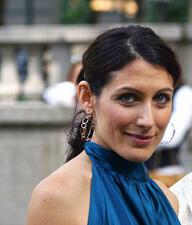
Lisa Edelstein
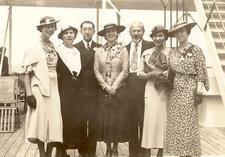
Judith Kaplan Eisenstein
The first American girl to publicly celebrate a bat mitzvah, Judith Kaplan Eisenstein went on to become a Jewish educator, composer, and musicologist. Her accomplishments included studying at the school that would later become Julliard, teaching at the Jewish Theological Seminary Teacher’s Institute, and writing a songbook for children.
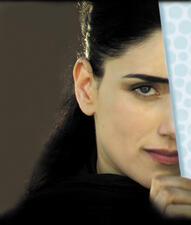
Ronit Elkabetz
Ronit Elkabetz (1963-2016) was one of Israeli cinema's leading actors. Coming from the northern periphery, she played in some of the major Israeli films of the last decades. She is particularly remembered for the trilogy she directed with her brother Shlomi Elkabetz: To Take a Wife (2004), The Seven Days (2009), and Gett: The Trial of Viviane Amsalem (2013), all addressing the issue of the oppression of Mizrahi women in the name of the Jewish religion.
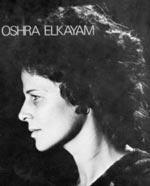
Oshra Elkayam-Ronen
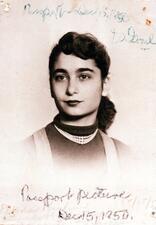
Ellida Geyra
Ellida Geyra was Israel’s first woman film director. She was a choreographer, dancer, and cultural figure best known for the groundbreaking feature Before Tomorrow (1969). Geyra challenged the hegemonic view in Israeli cinema and depicted woman’s passion as a political event
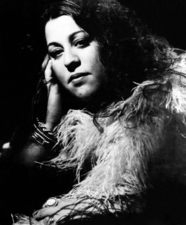
"Mama" Cass Elliot

Nora Ephron
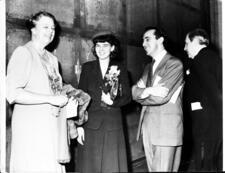
Phoebe Ephron
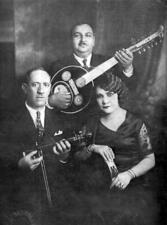
Rosa Eskenazi
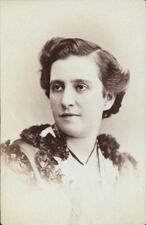
Rose Eytinge
Reportedly the first American theater actress to earn a three-figure salary, Rose Eytinge was praised for her fiery, passionate performances. Known for taking on physically demanding roles, on a performance tour stop in Washington, she was invited to the White House by President Abraham Lincoln. In 1905 she published her autobiography, Memories of Rose Eytinge, detailing her life in theater.
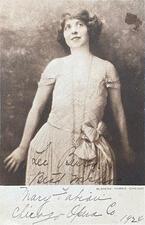
Mary Jacqueline Fabian
Mary Jacqueline Fabian was a talented soprano who toured throughout the United States in Europe in the twentieth century. Fabian’s primary legacy to the arts lies not in her performances, her versatility on stage, or her popularity behind the microphone, but rather in her organizational skills and her unswerving conviction that opera and music education are not just for the elite.
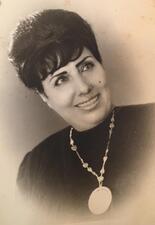
Zohra El Fassia
Zohra El Fassia was a renowned singer and recording artist in twentieth-century Morocco. Her life story moves between the burgeoning colonial recording industry in the Maghrib to North African immigrant histories in the south of Israel. El Fassia’s soulful music and powerful persona have resonated with generations of artists and activists who look to her for the unheard stories of Jews in the Arab and Muslim world and of Mizrahi Jews in Israel.
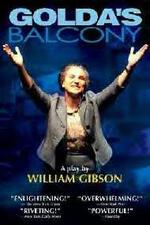
Tovah Feldshuh
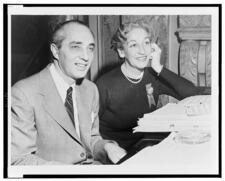
Dorothy Fields
Dorothy Fields wrote songs for a wide variety of musicals that became classics of American culture, from “Hey Big Spender” to “A Fine Romance” and “The Way You Look Tonight,” which won an Academy Award in 1936. In 1971, when the Songwriters’ Hall of Fame held its first annual nominations, Dorothy Fields was the only woman named to the ballot.
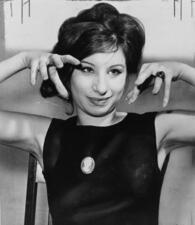
Film Industry in the United States

Filmmakers, Independent European
The substantial success of many European Jewish women filmmakers attests to their abilities to preserve or imagine what was lost as a community. The films of those born in Central Europe are reflective of the Jewish experience of loss, outsider-ness, and memory; others explore courage and individual acts of resistance during World War II. Western European directors re-tell personal stories of friendship and betrayal in a historical context of Europe without its Jews. A strong body of work from North African-born filmmakers reflects the relationship between Arabs and Jews.
